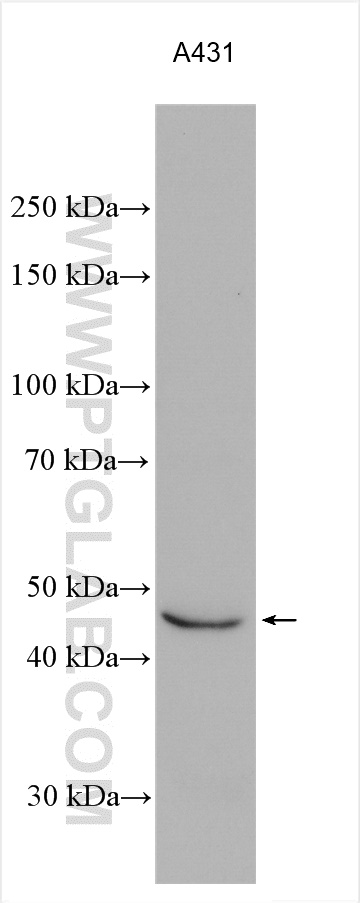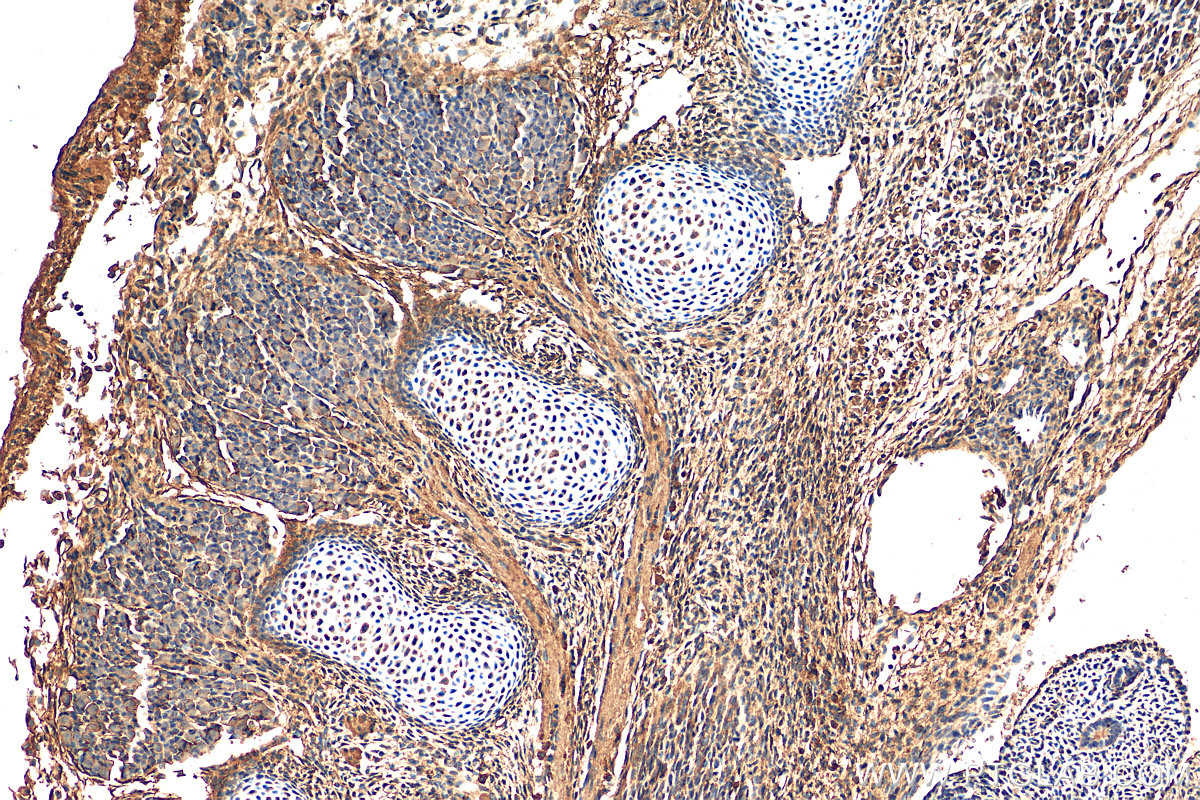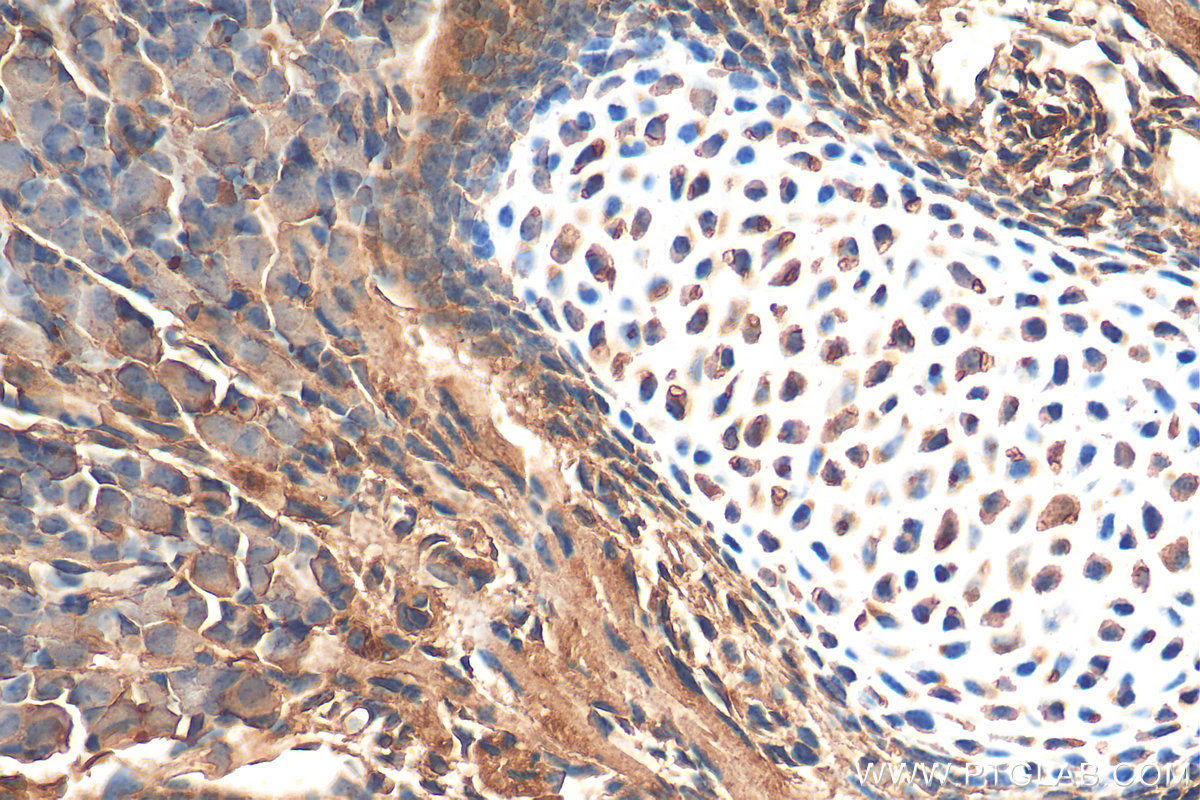验证数据展示
经过测试的应用
| Positive WB detected in | A431 cells |
| Positive IHC detected in | mouse embryo tissue Note: suggested antigen retrieval with TE buffer pH 9.0; (*) Alternatively, antigen retrieval may be performed with citrate buffer pH 6.0 |
推荐稀释比
| 应用 | 推荐稀释比 |
|---|---|
| Western Blot (WB) | WB : 1:1000-1:4000 |
| Immunohistochemistry (IHC) | IHC : 1:50-1:500 |
| It is recommended that this reagent should be titrated in each testing system to obtain optimal results. | |
| Sample-dependent, Check data in validation data gallery. | |
产品信息
29781-1-AP targets SCPEP1 in WB, IHC, ELISA applications and shows reactivity with Human, mouse samples.
| 经测试应用 | WB, IHC, ELISA Application Description |
| 经测试反应性 | Human, mouse |
| 免疫原 | SCPEP1 fusion protein Ag31396 种属同源性预测 |
| 宿主/亚型 | Rabbit / IgG |
| 抗体类别 | Polyclonal |
| 产品类型 | Antibody |
| 全称 | serine carboxypeptidase 1 |
| 别名 | HSCP1, RISC, SCP1, SCPEP1, serine carboxypeptidase 1, UNQ265/PRO302 |
| 计算分子量 | 452 aa, 51 kDa |
| 观测分子量 | 33-51 kDa |
| GenBank蛋白编号 | BC072405 |
| 基因名称 | SCPEP1 |
| Gene ID (NCBI) | 59342 |
| RRID | AB_2923608 |
| 偶联类型 | Unconjugated |
| 形式 | Liquid |
| 纯化方式 | Antigen affinity purification |
| UNIPROT ID | Q9HB40 |
| 储存缓冲液 | PBS with 0.02% sodium azide and 50% glycerol , pH 7.3 |
| 储存条件 | Store at -20°C. Stable for one year after shipment. Aliquoting is unnecessary for -20oC storage. |
背景介绍
SCPEP1 encodes retinoid-inducible serine carboxypeptidase (PMID:12975309). SCPEP1 and Cathepsin A play roles in regulation of vasoconstriction via inactivation of endothelin-1 (PubMed:24586188). The protein is widely expressed during mouse embryogenesis by immunohistochemical (PubMed:16461364). Scpep1 is proteolytically cleaved to a mature enzyme which is smaller than 51 kDa (PMID:16461364).
实验方案
| Product Specific Protocols | |
|---|---|
| WB protocol for SCPEP1 antibody 29781-1-AP | Download protocol |
| IHC protocol for SCPEP1 antibody 29781-1-AP | Download protocol |
| Standard Protocols | |
|---|---|
| Click here to view our Standard Protocols |


